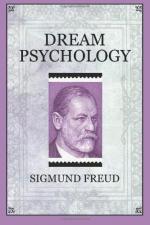On account of the intimate relation of dream fear to neurotic fear, discussion of the former obliges me to refer to the latter. In a little essay on “The Anxiety Neurosis,"[6] I maintained that neurotic fear has its origin in the sexual life, and corresponds to a libido which has been turned away from its object and has not succeeded in being applied. From this formula, which has since proved its validity more and more clearly, we may deduce the conclusion that the content of anxiety dreams is of a sexual nature, the libido belonging to which content has been transformed into fear.
[1] To sit for the painter. Goethe: “And if he has no backside, how can the nobleman sit?”
[2] I myself regret the introduction of such passages from the psychopathology of hysteria, which, because of their fragmentary representation and of being torn from all connection with the subject, cannot have a very enlightening influence. If these passages are capable of throwing light upon the intimate relations between the dream and the psychoneuroses, they have served the purpose for which I have taken them up.
[3] Something like the smoked salmon in the dream of the deferred supper.
[4] It often happens that a dream is told incompletely, and that a recollection of the omitted portions appear only in the course of the analysis. These portions subsequently fitted in, regularly furnish the key to the interpretation. Cf. below, about forgetting in dreams.
[5] Similar “counter wish-dreams” have been repeatedly reported to me within the last few years by my pupils who thus reacted to their first encounter with the “wish theory of the dream.”
[6] See Selected Papers on Hysteria and other Psychoneuroses, p. 133, translated by A.A. Brill, Journal of Nervous and Mental Diseases, Monograph Series.
V
SEX IN DREAMS
The more one is occupied with the solution of dreams, the more willing one must become to acknowledge that the majority of the dreams of adults treat of sexual material and give expression to erotic wishes. Only one who really analyzes dreams, that is to say, who pushes forward from their manifest content to the latent dream thoughts, can form an opinion on this subject—never the person who is satisfied with registering the manifest content (as, for example, Naecke in his works on sexual dreams). Let us recognize at once that this fact is not to be wondered at, but that it is in complete harmony with the fundamental assumptions of dream explanation. No other impulse has had to undergo so much suppression from the time of childhood as the sex impulse in its numerous components, from no other impulse have survived so many and such intense unconscious wishes, which now act in the sleeping state in such a manner as to produce dreams. In dream interpretation, this significance of sexual complexes must never be forgotten, nor must they, of course, be exaggerated to the point of being considered exclusive.




